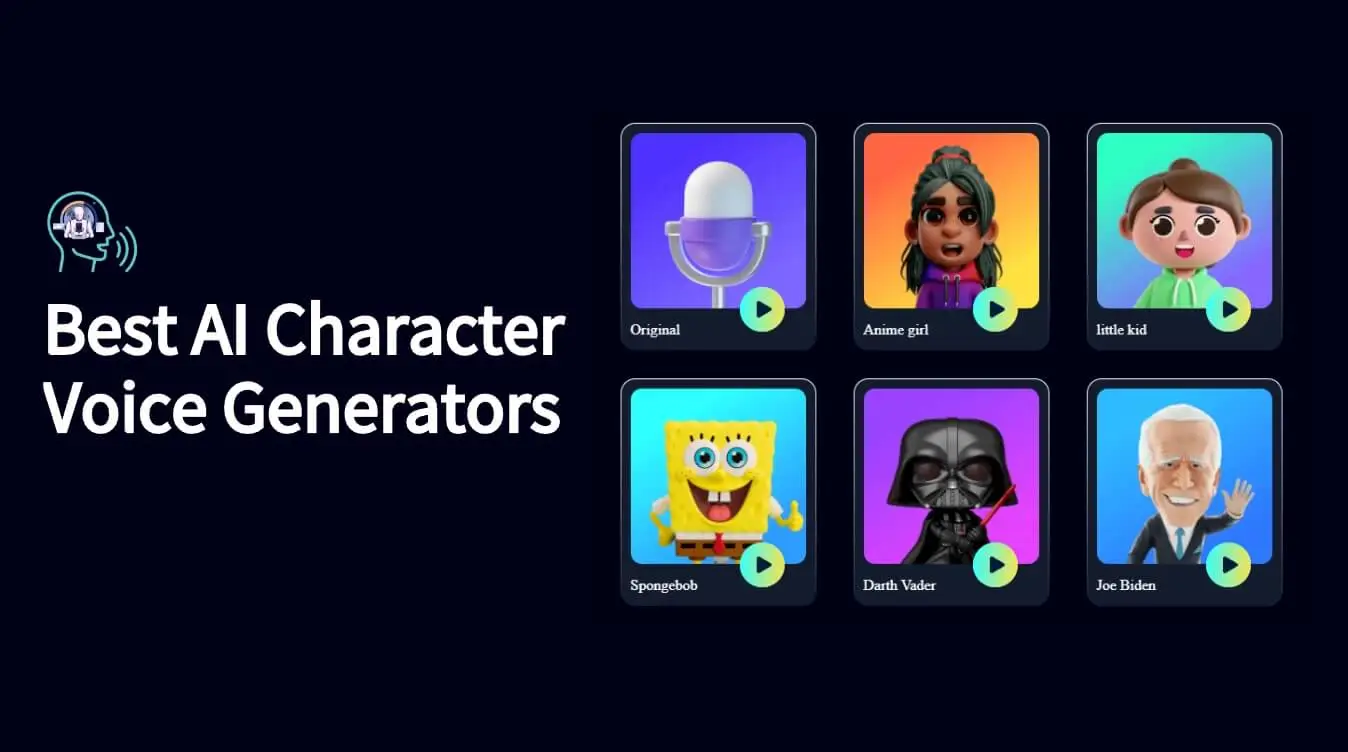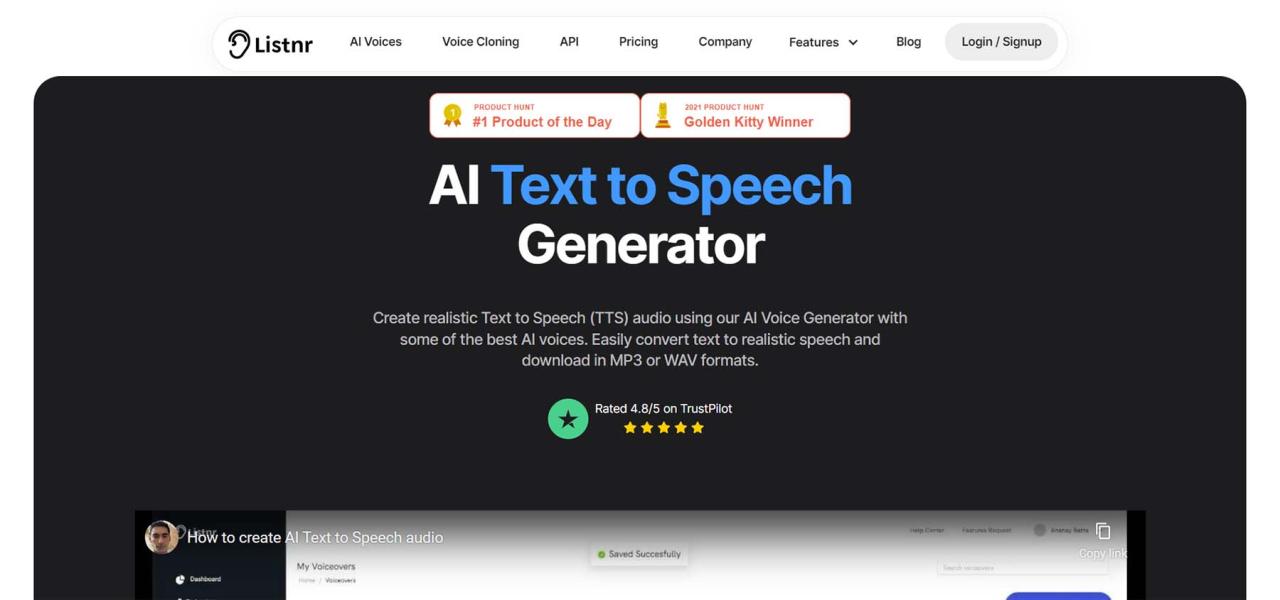AI voice generators are revolutionizing how we interact with technology. From realistic text-to-speech narration to personalized virtual assistants, these tools leverage cutting-edge machine learning to create incredibly natural-sounding voices. This exploration delves into the technology, applications, and ethical considerations surrounding this rapidly evolving field.
We’ll cover the different types of AI voice generators, the underlying machine learning models, and the factors that influence voice quality. We’ll also examine real-world applications across gaming, accessibility, education, and customer service, while addressing the ethical challenges and future trends in this exciting area.
AI Voice Generators: A Comprehensive Overview
AI voice generators are transforming how we interact with technology and each other. They leverage the power of artificial intelligence to create realistic and natural-sounding voices from text or audio input. This overview explores the technology, applications, and ethical considerations surrounding these powerful tools.
AI voice generators are pretty cool, right? Want to learn how to build the tech behind them? Check out these top-rated IT courses for beginners with career guidance to get started; they’ll give you a solid foundation in programming and AI, which are essential for developing your own AI voice generator projects. So, dive in and start creating!
Core Functionality of AI Voice Generators
AI voice generators, at their core, convert text or audio into speech. Text-to-speech (TTS) generators take written text as input and produce corresponding audio. Voice cloning generators, on the other hand, learn from existing audio samples to replicate a specific person’s voice. This allows for the creation of personalized or character-specific voices.
Types of AI Voice Generators
Two primary types exist: text-to-speech (TTS) and voice cloning. TTS systems offer a wide range of voices, often categorized by gender, accent, and tone. Voice cloning, a more advanced technique, replicates a specific individual’s voice, requiring a significant amount of training data.
Examples include readily available TTS services like those offered by Google, Amazon, and Microsoft, which power many virtual assistants and accessibility tools. Voice cloning finds applications in personalized audiobooks, video game character voicing, and even creating synthetic voices for individuals with speech impairments.
Technology Behind AI Voice Generators
The technology powering AI voice generation relies heavily on machine learning, specifically deep learning models like recurrent neural networks (RNNs) and convolutional neural networks (CNNs), often combined with techniques like WaveNet and Tacotron. These models are trained on massive datasets of speech audio, learning to map textual or audio input to corresponding acoustic features.
AI voice generators are pretty cool, letting you create realistic-sounding voices for all sorts of projects. Speaking of projects, check out this news story about the Canucks: Canucks recall Arturs Silovs, Thatcher Demko remains out vs – it’s a good example of how AI could be used to create a sportscast. Back to AI voice generators though, imagine the possibilities for personalized audio experiences!
Data Processing Techniques
Training these models involves meticulous data preprocessing. This includes cleaning and normalizing audio data, aligning text with corresponding audio segments (phoneme alignment), and feature extraction (e.g., Mel-frequency cepstral coefficients – MFCCs). The quality and quantity of this data directly impact the quality of the generated voice.
Comparison of Synthesis Methods

Different synthesis methods exist, each with its strengths and weaknesses. Concatenative synthesis stitches together pre-recorded speech segments, while parametric synthesis generates speech waveforms directly from acoustic parameters. Neural text-to-speech (NTTS) leverages deep learning models for more natural and expressive speech.
| Synthesis Method | Pros | Cons | Applications |
|---|---|---|---|
| Concatenative | High quality for limited vocabulary | Limited flexibility, large storage requirements | Simple TTS systems |
| Parametric | Flexible, smaller storage requirements | Can sound less natural | Real-time TTS, mobile applications |
| Neural TTS | High naturalness, expressive speech | Computationally expensive, requires large datasets | High-quality TTS systems, voice assistants |
Factors Affecting Voice Quality, Ai voice generator
Several factors influence the quality of generated voices. Data size and quality are paramount; more data generally leads to better performance. Acoustic modeling plays a crucial role in capturing the nuances of human speech, including intonation and prosody. Techniques like voice conversion and style transfer can further enhance voice realism.
Impact of Data Size and Quality
Larger, higher-quality datasets lead to more natural and expressive generated voices. Noisy or inconsistent data can negatively impact the model’s ability to learn accurate speech patterns. Data diversity, encompassing various accents and speaking styles, is also essential for creating versatile AI voices.
Applications and Use Cases
AI voice generators are rapidly expanding into diverse fields. Their capabilities are transforming how we interact with technology and media.
- Gaming and Interactive Storytelling: Creating immersive experiences with dynamic character voices.
- Accessibility Applications: Powering screen readers and text-to-speech tools for visually impaired individuals.
- E-learning and Educational Tools: Personalized learning experiences through interactive voiceovers and tutorials.
Customer Service Application Scenario
Imagine a customer service chatbot incorporating an AI voice generator. The system could respond to customer inquiries using a natural, empathetic voice, providing personalized support and enhancing customer satisfaction. The AI could adapt its tone and style depending on the customer’s emotional state, detected through natural language processing (NLP).
Ethical Considerations and Challenges

The widespread adoption of AI voice generators raises ethical concerns. The potential for misuse, such as creating deepfakes or impersonating individuals, is a significant challenge.
- Voice Cloning Misuse: Preventing unauthorized replication of voices for fraudulent activities.
- Deepfake Concerns: Mitigating the creation and spread of manipulated audio content.
Mitigating Risks and Best Practices

Addressing these ethical concerns requires a multi-pronged approach. This includes developing robust detection mechanisms for synthetic speech, implementing stricter regulations around voice cloning, and promoting responsible AI development practices.
AI voice generators are pretty cool, right? You can use them for all sorts of things, from creating audiobooks to making personalized messages. It’s a bit ironic, then, to think about how even with all this tech, a real-life situation like Jermaine Burton’s eviction, as reported in this article Jermaine Burton left home by Bengals, gets eviction notice , highlights the human element we sometimes forget.
Maybe an AI could even generate a sympathetic voice message for him. Anyway, back to AI voice generators – the possibilities are endless!
- Transparency and Disclosure: Clearly indicating when synthetic speech is used.
- Consent and Authorization: Obtaining explicit consent before cloning an individual’s voice.
Future Trends and Developments
The field of AI voice generation is rapidly evolving. We can anticipate significant advancements in personalization, naturalness, and emotional expression. The integration of emerging technologies, such as multimodal AI and personalized learning algorithms, will further enhance the capabilities of these systems.
Personalized Audiobook Scenario
Imagine creating a personalized audiobook using an AI voice generator. The user uploads the text of their manuscript, selects a desired voice style and tone (e.g., a calm, authoritative voice for a nonfiction book, or a more expressive, dramatic voice for fiction), and the AI generates a high-quality audiobook with natural-sounding speech and appropriate emotional inflections. The process could even allow for real-time adjustments to pacing, intonation, and emphasis, providing unprecedented control over the final product.
AI-Generated Voice in a Virtual Assistant
Consider a virtual assistant with an AI-generated voice designed for optimal clarity and ease of understanding. The voice could be customized to match the user’s preferences, choosing from a range of accents, tones, and speaking styles. The AI could adapt its response speed and phrasing based on the user’s interaction history, learning to communicate more efficiently over time. The system might even incorporate emotional cues, subtly adjusting its tone to convey empathy or encouragement.
Last Word
AI voice generators are not just a technological marvel; they are reshaping how we communicate and interact with the digital world. As the technology continues to advance, we can expect even more realistic, expressive, and personalized voices that seamlessly integrate into our daily lives. Understanding both the capabilities and limitations of this technology is crucial for responsible innovation and ethical development.
Essential FAQs
What are the best AI voice generator software options available?
Several excellent options exist, each with strengths and weaknesses depending on your needs. Research popular choices and compare features like voice quality, customization options, and pricing before selecting one.
How much does it cost to use an AI voice generator?
Pricing varies widely depending on the service and usage. Some offer free tiers with limitations, while others charge based on usage or subscription.
Are there any legal restrictions on using AI-generated voices?
Yes, be mindful of copyright and intellectual property laws, especially when using voices that mimic real individuals. Always check the terms of service of the AI voice generator you use.
Can I use an AI voice generator to create a voice for a character in my novel?
Absolutely! AI voice generators can be a fantastic tool for bringing fictional characters to life, allowing you to hear their voices and refine their personalities.